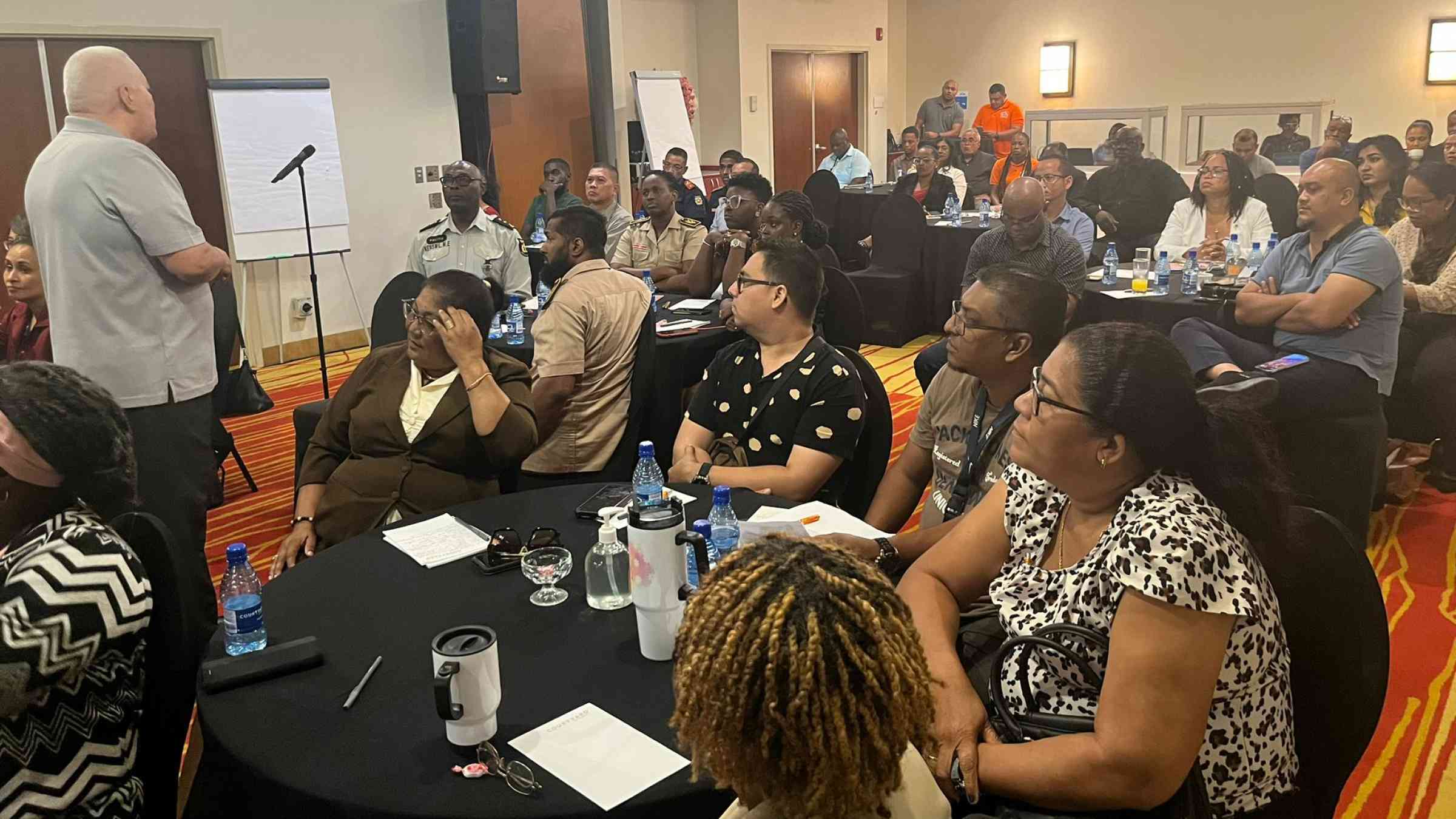Launch of the Country Work Programme for Suriname with a Comprehensive Climate and Disaster Risk Management Approach

Suriname, located on the northeastern coast of South America, is prone to various natural hazards, including flooding, heavy rainfall, coastal erosion, and the effects of climate change. Effective disaster risk reduction (DRR) strategies are critical for ensuring the safety and resilience of the population, protecting infrastructure, and fostering sustainable development.
The Republic of Suriname's government acknowledges the pressing necessity to strengthen the nation's resilience against future natural hazards and disasters. Consequently, the National Coordination Centre for Disaster Risk Management (NCCR) with the support of the Caribbean Disaster Emergency Management Agency (CDEMA), the Disaster Risk Reduction Centre (DRRC) at the University of the West Indies, and the United Nations Office for Disaster Risk Reduction (UNDRR) have launched the process to develop the Suriname Country Work Programme for Comprehensive Disaster Management (The National Strategy for Disaster Risk Reduction).
To advance the execution of the Regional Comprehensive Disaster Management Strategy and the Sendai Framework for Disaster Risk Reduction, Suriname is prioritizing disaster and climate resilience across all aspects of its development. Consequently, there is a strong understanding of the importance of an integrated Country Work Programme for realizing the 2030 Sustainable Development Agenda and the national commitments on the Paris Agreement. Suriname has established a National Adaptation Plan (NAP) in 2020.
A Disaster Risk Reduction (DRR) gap analysis workshop can help identify the existing strengths and weaknesses in Suriname’s current disaster risk management systems. It can provide valuable insights into improving the country's preparedness, response, and recovery efforts. Such a workshop can also facilitate collaboration among key national and regional stakeholders to enhance disaster risk reduction in the country with an integrated approach to climate change adaptation, disaster risk reduction financing, resilient infrastructure and human mobility among others.
The main goal of the Disaster Risk Reduction (DRR) Gap Analysis Workshop in Suriname is to assess the existing state of DRR efforts in the country and identify key gaps and challenges within the current systems. The workshop aims to develop actionable recommendations and strategies to improve resilience and preparedness against any kind of hazards that could trigger disasters. By fostering collaboration and knowledge exchange among diverse stakeholders, the workshop seeks to launch the process for preparing a CWP for the country that would strengthen Suriname's disaster risk management capabilities thereby ensuring the safety and well-being of its population.
Objectives
The primary objectives of the DRR Gap Analysis workshop in Suriname are to:
● Assess the current state of DRR efforts in Suriname, including policies, plans, and programs.
● Identify gaps in the current DRR strategies, resources, and coordination mechanisms.
● Gather input from various stakeholders (government agencies, NGOs, private sector, academia, and community representatives) to understand diverse perspectives and experiences.
● Develop recommendations and action plans to address identified gaps, enhance DRR initiatives, and integrate DRR and Climate Change Adaptation (CCA) into specific sectors.
● Foster partnerships and collaborative approaches to improve disaster resilience in Suriname.